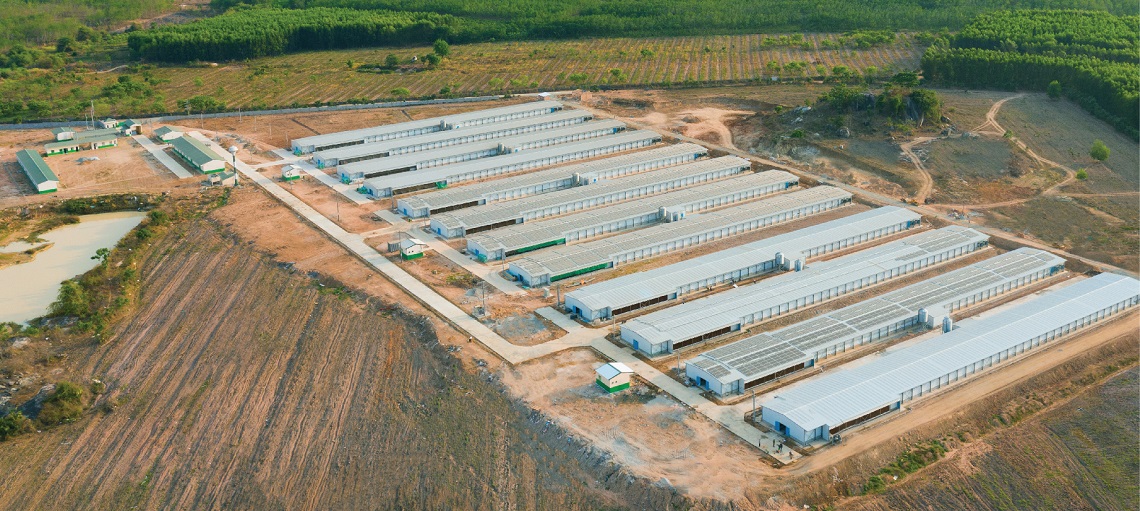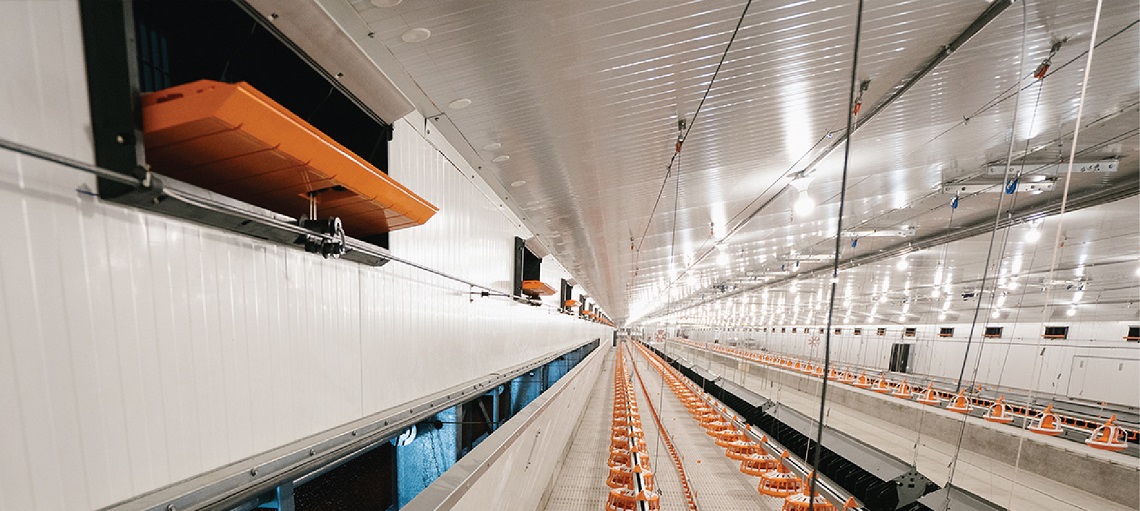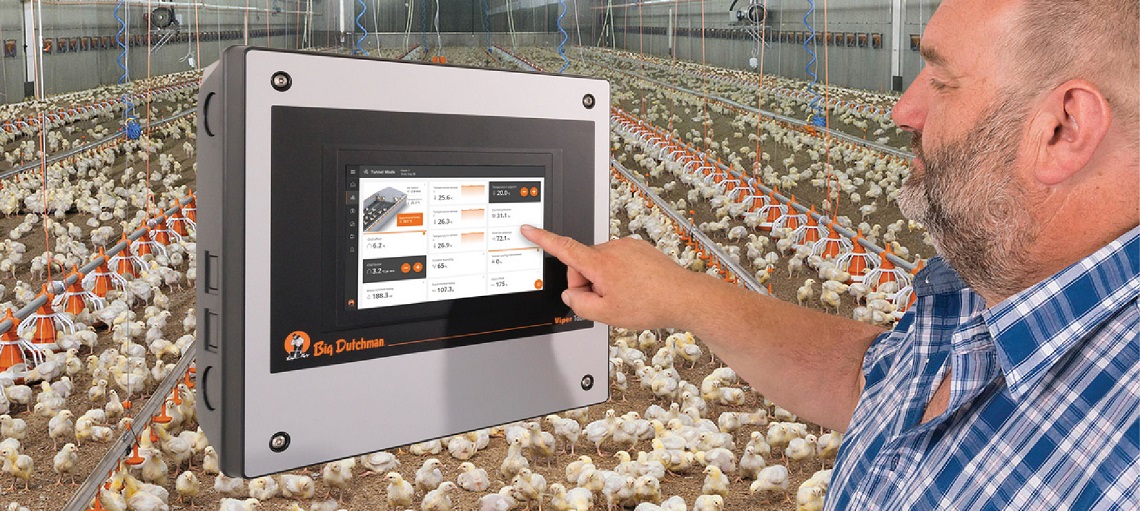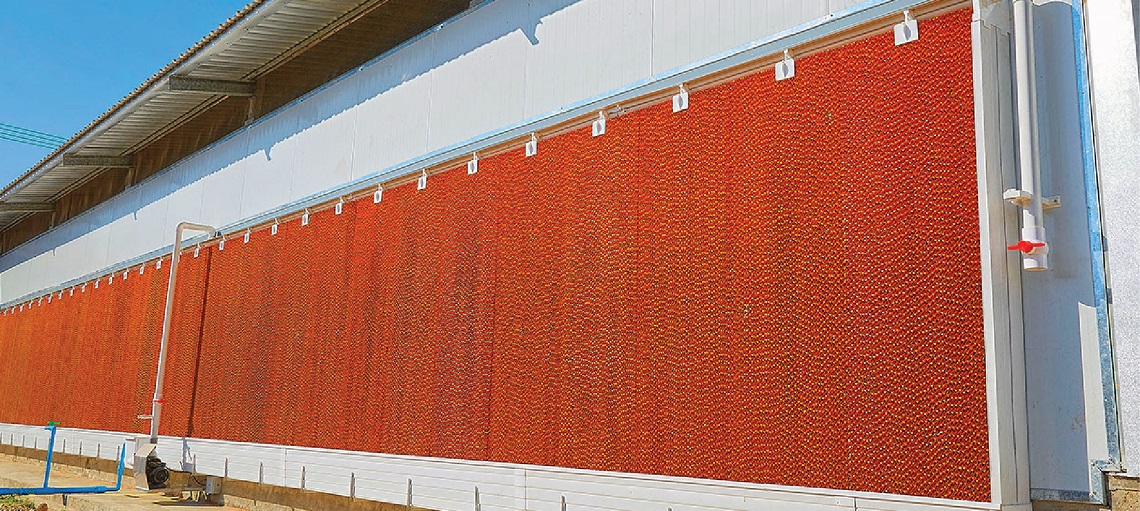In Control: An Analysis of the Closed Housed System in Broiler Production
Broiler production has transformed significantly over the past few decades, particularly in Asia, where demand for poultry meat is on the rise. A key innovation that has revolutionized broiler farming is the modern closed-house system — a controlled environment designed to optimize bird health, improve productivity, and boost farm profitability. Let’s explore the advantages, strategies, and critical considerations for implementing closed-house systems in broiler production in Asia.
What is a Closed-House System?
The closed-house system is an enclosed poultry house where environmental factors such as temperature, humidity, ventilation, and lighting are fully controlled. Unlike traditional open-sided housing, the closed-house system allows farmers to manage conditions inside the house, ensuring an optimal environment for the birds throughout their growth cycle. The goal is to eliminate the influence of external factors like extreme weather, pests, or poor air quality, which can negatively impact bird health and production.
At Big Dutchman for instance, our closed-house systems rely on a combination of pre-engineered buildings, ventilation, cooling, insulation, lighting and computer controls to maintain stable conditions, regardless of the external environment. In Asia especially, where tropical climate and high humidity reigns, a closed house system is particularly valuable to maintain a comfortable environment for the birds.
Advantages of Closed-House Systems in Broiler Production
1. Improved Bird Health and Welfare
A controlled environment is crucial for maintaining the health and welfare of broiler chickens. In closed-house systems, farmers can monitor and adjust environmental conditions to prevent heat stress, and humidity-related issues. This leads to healthier birds with better immune systems, ultimately reducing mortality rates and the need for medications.
In fact, research has shown that closed-house systems can reduce broiler mortality by up to 5-10% compared to traditional open-sided housing. Healthier birds also mean fewer medical interventions. Closed-house systems allow farmers to reduce the reliance on antibiotics by preventing common stress-related diseases, which is crucial given global concerns over antibiotic resistance.
2. Enhanced Feed Conversion Ratio (FCR)
The feed conversion ratio (FCR) is a critical performance indicator in poultry farming. It measures how efficiently birds convert feed into body weight. In a well-maintained closed-house system, the consistent environment allows birds to focus their energy on growth rather than temperature regulation, leading to improved FCR.
Studies in Thailand and Malaysia have demonstrated that broilers raised in closed-house systems have an FCR improvement of 0.1 to 0.2 points, translating to significant feed savings. For instance, if a farm produces 10,000 broilers, this can result in savings of several tons of feed over a production cycle.
3. Increased Productivity and Uniformity
A key benefit of closed-house systems is the increase in overall productivity. By maintaining optimal environmental conditions, birds experience less stress and grow more uniformly. This consistency is critical for achieving market weight efficiently and meeting consumer demand for uniform products.
On average, broilers in closed-house systems reach market weight 5-7 days earlier than those in open-sided houses. This reduction in grow-out time allows for more production cycles per year, enhancing farm profitability.
4. Energy and Resource Efficiency
While closed-house systems require a higher initial investment in technology and equipment, they often result in long-term savings through energy efficiency and better resource management. Closed-house systems can significantly reduce water usage compared to traditional systems, as evaporative cooling and controlled humidity prevent water waste.
Furthermore, modern closed-house systems are equipped with energy-efficient ventilation and cooling systems that reduce electricity consumption. In tropical regions, such as Indonesia, closed-house systems have been shown to reduce energy costs by up to 40% per production cycle.
5. Year-Round Production
One of the standout advantages of the closed-house system is that it allows for year-round production, regardless of weather conditions. In Asia, where extreme heat, monsoon rains, and humidity fluctuations are common, maintaining consistent production throughout the year is crucial for meeting growing market demand.
Closed House Systems the Big Dutchman Way
Although closed-house systems offer numerous benefits, their success depends on proper solutions, strategy and equipment. As a pioneer in modern broiler production, Big Dutchman offers a complete solution – from buildings and ventilation to cooling and computer controls – creating a fully-optimized and efficient closed house system. Here’s a look at what Big Dutchman can offer in terms of building and equipping a modern closed house system for broiler production:
Pre-fabricated Buildings

Precision-engineered building based on 3D modelling that conforms to international standards and backed by a professional team. Precisely fabricated structures mean a virtually error-free installation on-site even by unskilled workers, which ensures swift progress. Our buildings are flush and airtight, ensuring efficient insulation, ventilation and durable support for all required equipment.
Ventilation

Leveraging our extensive expertise in ventilation dynamics and building engineering, our ventilation system delivers an optimal balance of air-moving capacity, energy efficiency, and airflow ratio. The combination of high-performance fans, air inlets and computerised control results in uniform ventilation and reduced power consumption. Most of our fans work efficiently even in high-pressure environments – ensuring precise and uninterrupted climate control.
Automated Computer Control

Our ViperTouch climate computer system is an advanced technology than can be used to control the entire house environment. It can be used to manage a wide range of variables and functions, including fresh air, exhaust air, cooling, heating (especially in the rearing house), air mixers, alarms and emergency opening. ViperTouch also records all the important data concerning your hens, which allows you to monitor them in real time and be alerted to changes as they occur.
Cooling Pads

Big Dutchman’s RainMaker cooling pad uses evaporation to effectively cool closed houses and is especially useful in hot and humid climates in Asia Pacific. The higher the temperature and the lower the relative humidity, the higher the cooling effect. The RainMaker is also a simple system with minimum installation requirements, along with easy monitoring and maintenance.
The closed-house system is a game-changer for broiler production in Asia, providing a controlled environment that enhances bird health, improves feed efficiency, and increases overall productivity. While the initial investment may be high, the long-term benefits in terms of profitability, sustainability, and operational efficiency make it an attractive option for modern broiler farmers.
Big Dutchman builds and equips modern closed-houses systems for broiler production. Click the ‘Send a Message’ Button below to talk to us.

